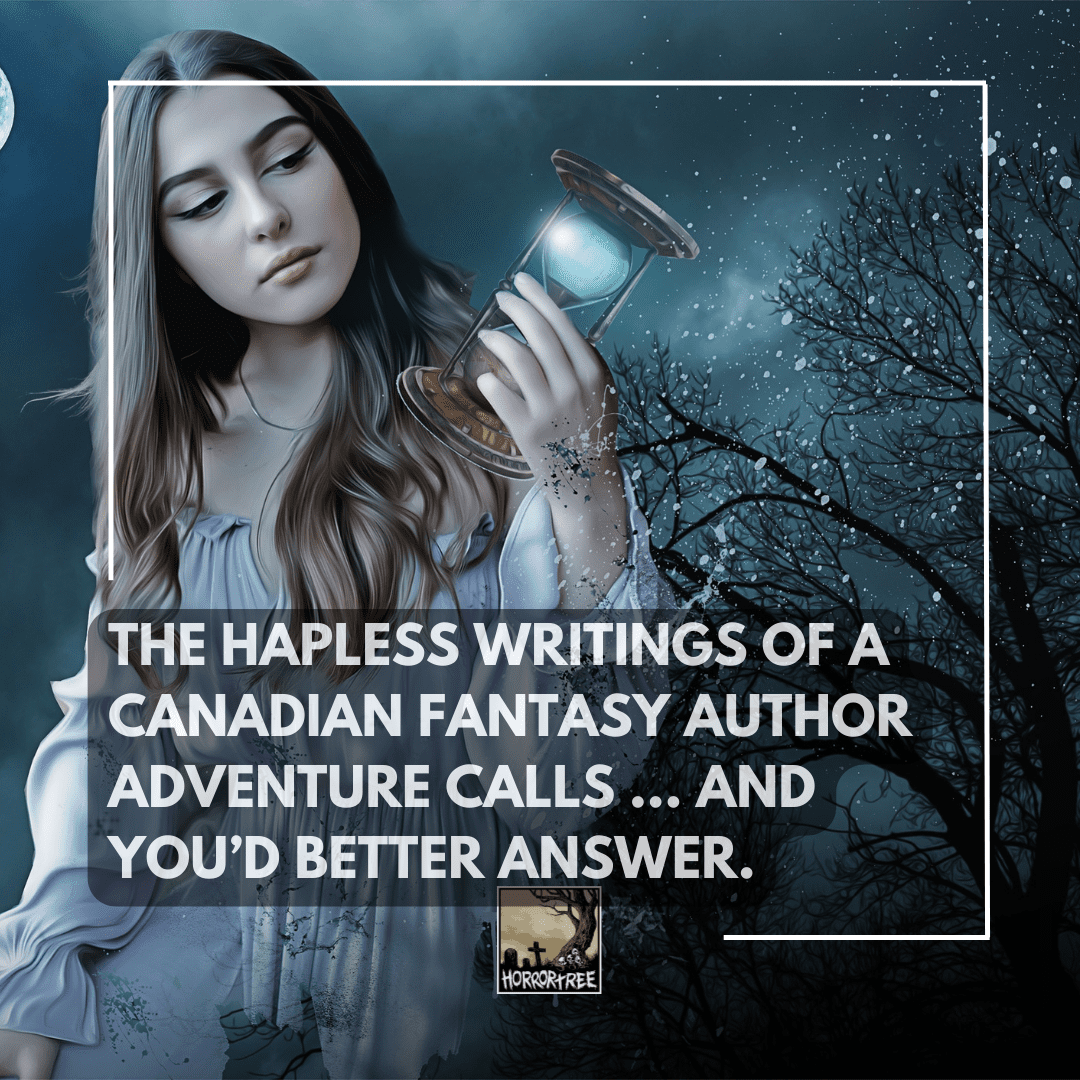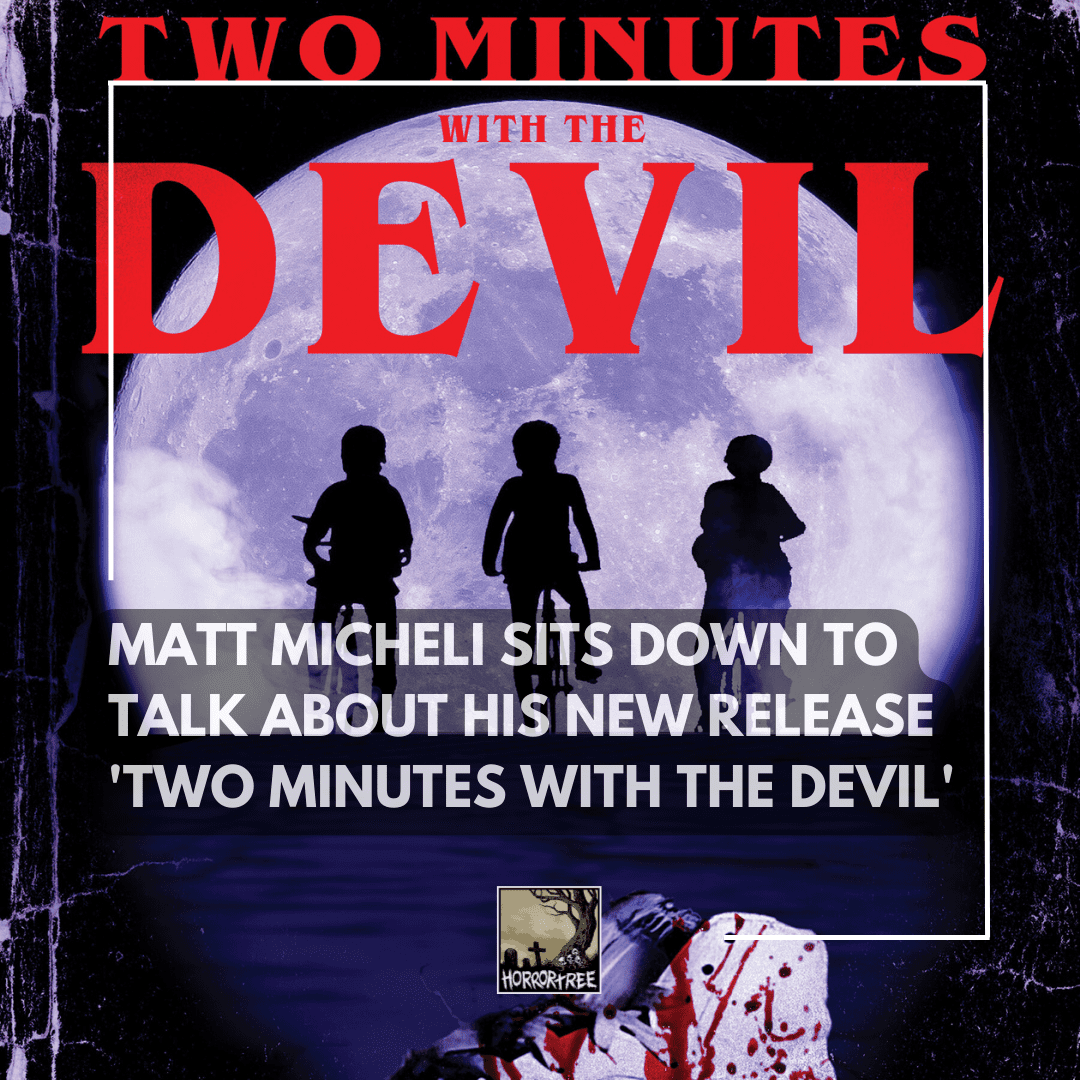Adventure calls … and you’d better answer.

The Hapless Writings of a Canadian Fantasy Author
Adventure calls … and you’d better answer.
In his latest column, Canadian-born, UK-based fantasy author Matthew Ducharme is perhaps a little overworked, and feeling in need of an escape as he goes against his Jedi teachings in search of excitement, adventure, and the boundless expanse of the imagination.
Fantasy is many things.
But mostly, it’s an open sandbox in which the mind can play. Rules of nature are malleable, amendable, and often breakable, allowing both writer and reader room to explore beyond the limitations of our world… The ‘real’ world, if you will; a world of law and (relative) order.
This means there’s an implicit invitation in fantasy to escape. And while this does exist in other forms of literature, it is most prevalent in fantasy (and, no, actually, not so much in sci-fi this time, buddy, so cool it…a little).
Last time, I briefly touched on how — especially in today’s chaotic and, at times, seemingly hopeless world — we desire escape. Not simply an escape into a story that differs from our own, but an escape into a world that differs. For me, this is where the real joy of fantasy lives.
Now, I’m going to preface this by saying that I rather enjoy my life. I’ve managed to carve out a little place for myself, and I’m trying to settle into it. But I am by nature adventurous. My preferred state is constant motion, eyes ever-forward towards the horizon.
This has always been the case. As a child, I terrorised my brother, mother and father, disrupted class at every opportunity, and from the onset, felt trapped in my small hometown. As I approach my 40th decade, I’m the first to admit that nothing’s changed.
Back then, my ADHD-fuelled imagination drove everything. My brother and I never just played with our toys; we invented elaborate scenarios, created objectives and parody between our warring sides. We were pedantic about motive, directive, angles, and range. Movement needed to be accurate, and nothing ‘just happened’. There were consequences to everything. We lived in our imaginations and these things, these stories, they were real.
Childhood encouraged us. Kids are supposed to do that.
But (and there’s always going to be a ‘but’; you knew this was coming), as an adult, the world is much less accommodating. I’ve grown into it, toned down my hyperactivity to a more ‘socially acceptable’ level and adapted. I have a corporate job, and while it’s amongst the most constant-state-of-motion-friendly positions there is, I’ve become more and more sedimentary as I’ve progressed in my career.
I sit at a desk more often than I don’t.
My travel, while still frequent, is just airports, hotels, and seaports.
And I yearn for adventure.
For freedom.
This is why I write. I need to imagine.
I’m telling you this because I wager a fair few of you feel the same way.
In adulthood, it gets harder to tell someone that, when you’re looking out the car window, you’re not ‘looking at the scenery’— you’re clad in armour and armed with a bow, a sword, or your own inherent skills in the dark arts, running at full-pelt through the forest on a vitally important mission.
For some, that difficulty — and subsequent social awkwardness that inevitably follows on its heels — has put a stop to this altogether. It has faded; maybe not all at once but gradually, over years of subtle embarrassment and a desire to fit in.
This is the tragedy of growing up. It’s why the idea of J.M. Barrie’s Neverland appeals so broadly. Many lament the death of their imagination. Their inner child.
But it doesn’t have to be this way.
Not anymore.
Fantasy stories have been thrust into the mainstream over the past 20 years. With the help of Peter Jackson, the Lord of the Rings is no longer a story just for children and nerds (but, as a self-proclaimed nerd, I can happily tell you it is still very much for us); it’s socially ‘cool’ now, for everyone…almost everyone anyway.
More and more adults are reconnecting with their (often long-kept-secret) love of fantasy. The appeal is simple: unlike any other genre, fantasy offers the freedom to explore, to seek, and to find adventure. In forcing a reader’s willing suspension of disbelief to the extremes, fantasy, as a genre, awakens the imagination — in many cases, re-awakens it.
Fantasy reminds us that there are more important things than budget analysis and operational huddles. It forces us to step outside of our buttoned-up and neatly-pressed existence, to escape into something magical, where stakes are life and death and (quite literally) out of this world.
There is, deep down (ok, maybe not so deep down), in most (more like all) of us, a desire for freedom. Our day-to-day 9-5 is strictly regimented. We have mortgages, car payments, bills, and a thousand other things that keep us chained to where we are. We build a box for ourselves, and the weight of responsibility seals us within it.
So…
…the quite literal invitation to pick up our walking stick and strike off down the trail towards the unknown on a quest of dire importance speaks directly to our souls. Fantasy helps to scratch the itch of our confinement.
I can almost feel some of you reading this and thinking that we (fantasy addicts / escapists / would-be adventurers) should just get out and do the thing…go and chase this urge and sate our desires.
And to that, I say I do…we do.
In a million different ways we seek our adventures, but (and again, there was always going to be a ‘but’) the structure of society only allows for so much of this before we’re dragged back (kicking and screaming? Well, maybe not screaming exactly) and plopped down in our “rightful” place.
Now, again, I should state that I do enjoy my life a great deal, but the call to adventure never stops ringing in my ears. And I’m sure it’s the same for many of you, too. There exists within us a dichotomy of desires. On one hand there is comfort, safety, and a place we can call our own. On the other it’s freedom, uncertainty and…danger.
Yes…danger.
It’s why True Crime is so popular. We need an element of danger in our lives to feel alive. In the West, where we are so pampered and protected, these reminders of our vulnerability have become entertainment. Take from that what you will, but it’s true nonetheless.
It’s why people like rollercoasters and skydiving. But these are manufactured scenarios; staged encounters with danger, and, after a while, the excitement fades.
We’ve all had our own near-death experiences, our brushes with disaster. I can only speak to mine, but can assure you that in the aftermath of a close call, I’ve never felt so invigorated. I’ve never felt so alive as when I’ve been so close to death.
This…
…this is why I love fantasy the most. Because there’s danger and surprise and so damn much unknown. The rules there are alien to us and strange, so our ability to anticipate what will happen is so much more limited than it is in genres set in a realistic world…in this world. The fantasy writer has only the boundaries of their imagination to limit the scope of possibility.
Fantasy offers adventure in its purest form.
Where information is at the tips of our fingers 24/7, as I said in a previous article (go back and read the others now HERE and HERE, if you haven’t!), and our sense of wonder diminishes. But along with our sense of wonder, so to does the feeling of danger — and without danger, stakes recede. Adventure fades.
But not on the page. Not where the imagination still thrives and the willing suspension of disbelief allows for anything to happen.
There…we are still free to explore.
- About the Author
- Latest Posts
Matthew Ducharme is a Canadian-born fantasy author living in Surrey, England. He also has superpowers – that is, he’s neurodiverse. Equal parts super-help and super-hinderance, his ADHD-riddled mind makes every day an adventure. Convinced he was stupid as a child, over time he learned to navigate his own chaotic mind. Now channelling his energy successfully,
Matthew enjoys little more than exploring the seemingly limitless expanse of his creativity.
His epic fantasy series (currently querying) was started during the pandemic to give his overactive mind an outlet on the long, quiet stretches. He also dabbles in other forms and genres, but fantasy is his true love. To pursue that further, he’s on the committee of the British Fantasy Society.
Competing for true love honours: his work in the cruise ship industry, which takes him around the globe; his tabletop gaming; the outdoors (archery, mountain biking, fishing, and more); and his wife and two cats (the little furballs hate when he focuses on writing, instead of them).
Check out his landing page here.














This is an awesome read! Can’t wait for the next one!